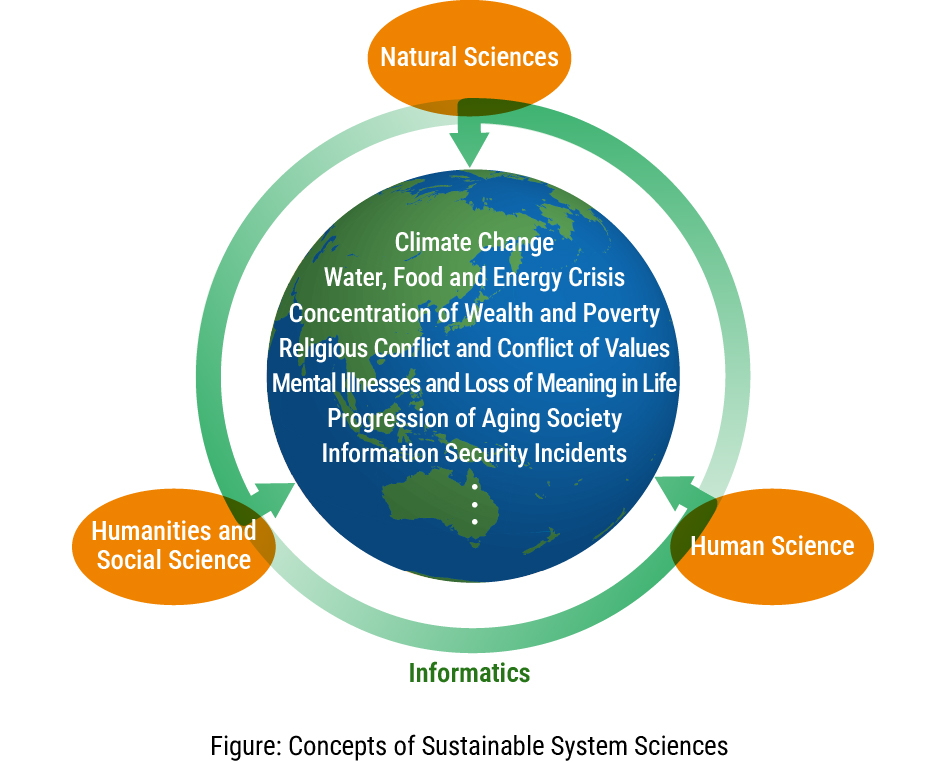
About
Mission of the College and Graduate School
Human beings are currently facing a great variety of problems, including global issues such as water, food, and energy crises caused by climate change and population explosion, poverty and concentration of wealth, conflicts between nations or regions due to differences in religion and norm, mental illness and loss of meaning in life, the aging of society, and information security incidents. The College of Sustainable System Sciences was established in April 2012 based on the recognition that modern society is unsustainable as it is. “Sustainable System Sciences” is defined as a collective term for the sciences that aim to transform our unsustainable modern society into a sustainable one.
Sustainable System Sciences includes natural sciences such as global environmental studies, ecology, environmental planning, and food production, which are necessary for understanding the sustainability of natural system; and humanities and social sciences such as philosophy, ethics, history, linguistics, policy science, law, economics, sociology, social welfare, education, and psychology, which are necessary for understanding the sustainability of social and human systems; and informatics, such as information systems science and study of artificial intelligence, which are necessary for understanding the sustainability of information system.

The College of Sustainable System Sciences is composed of four schools: Knowledge Information Systems, Environmental and Social System Sciences, Social Welfare and Education, and Psychology, based on the affinity of the fields of education and research and the relevance of the curriculum structure for the expected career paths.
The Graduate School of Sustainable System Sciences aims to make significant advancements through the integration of various academic fields. Starting in April 2025, the Department of Language and Culture and the Department of Human Science will merge to form a new Department of Human Science. Building on the expertise in educational and research areas within the graduate school, the new department will offer five specialized fields in the Master's Program: Environmental Sciences, Human Science, Social Welfare, Clinical Psychology, and Cognition and Behavior. For students transitioning from the Department of Knowledge and Information Systems, the appropriate path will be the Interdisciplinary Informatics Program in the Graduate School of Informatics.
In conventional university education, specialized human resources have been fostered through the acquisition of organized knowledge in existing academic fields. In order to develop human resources who can take a systematic view of today's complex society and be responsible for the realization of a sustainable society, however, it is important to learn how to solve real problems by integrating multiple academic disciplines. The human resources nurtured through this kind of learning will be the driving force that leads the world toward a sustainable society.